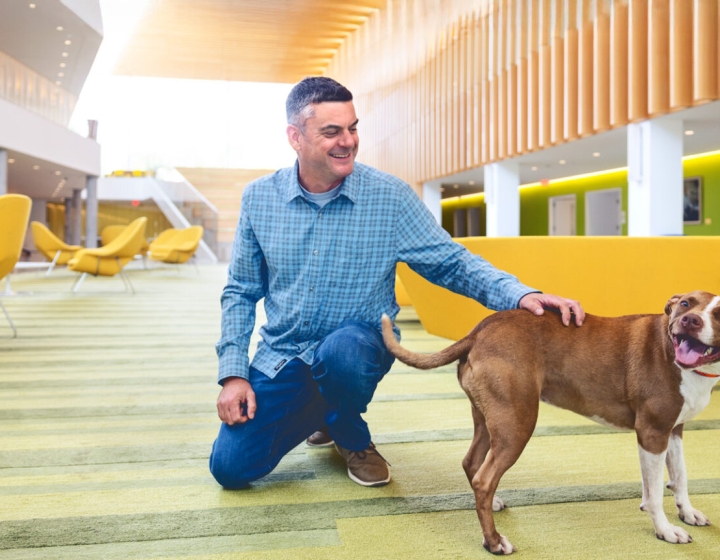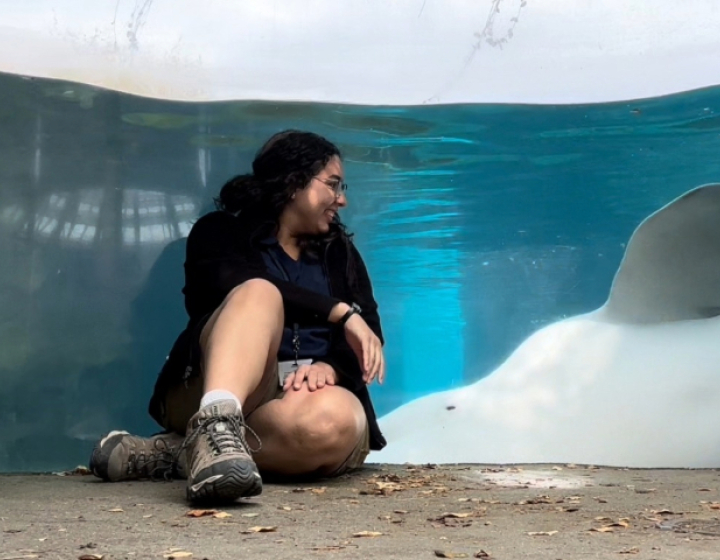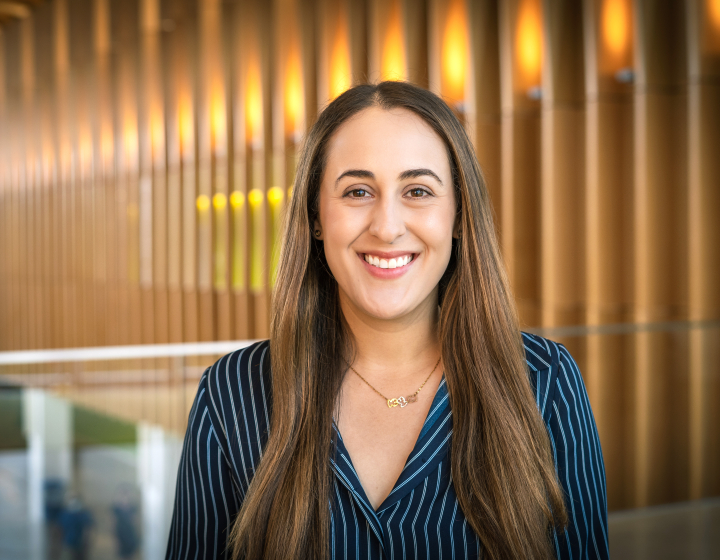New faculty: Jeanne Moseley
The Cornell University College of Veterinary Medicine (CVM) has recently welcomed many new faculty members to our academic departments and hospitals, each one bringing a unique set of skills and experience that enriches our college every day. In this Q&A series, you'll get to know their interests, expertise and more.
Jeanne Moseley, associate professor of practice, Department of Public and Ecosystem Health
Q: What has been your academic/career path leading up to Cornell?
I have actually been at Cornell for over 16 years. Prior to this new position at CVM, I was a Senior Lecturer in the Division of Nutritional Sciences and the Director of the undergraduate Global Health Program. In this role, I taught, developed and evaluated curriculum for the Global and Public Health Sciences major and university-wide minor in Global Health. I also worked closely with faculty, staff and students from across the university to develop and offer experiential and engaged learning programs in global and public health.
Before joining Cornell in 2006, I cultivated a diverse professional and academic portfolio in the fields of global and public health, adult education, international development and engaged learning. Some of these experiences included serving as a U.S. Peace Corps Volunteer, working as a public school teacher, conducting HIV/AIDS and food security research with diverse populations while a graduate student and fellow at Emory University and working as a public health researcher and practitioner with the New York City Department of Health and Mental Hygiene.
Q: What drew you to CVM?
The exciting opportunity to be a part of an innovative MPH program centered on the principles of equity, engagement and sustainability. I am also thrilled to work with colleagues who are student-centered and deeply passionate about teaching, community engagement, research and health equity.
Q: What is your academic area of expertise?
As an educator and practitioner in global and public health, I am focused on 1) cultivating strong engaged learning partnerships and programs, 2) utilizing evaluation methodologies to strengthen programs, partnerships and pedagogy 3) valuing and inviting student participation and leadership and 4) expanding existing partnerships in Tanzania to support new collaborations, research projects and initiatives focused on the linkages between the environment and human health.
Q: What drew you into this area? Any specific experiences, mentors, influences that helped guide you?
Honestly, I love teaching, mentoring and working in collaboration with others. Over the years, I have been so inspired and motivated by the commitment of amazing international partners, as well as the passion and dedication of Cornell faculty, staff and student leaders to transform this world for the better.
Q: What past professional work are you most proud of and why?
Since 2007, I have worked with faculty from Cornell and Kilimanjaro Christian Medical University-College (KCMUCo) to design, implement and evaluate an engaged learning program in global health and development policy. Between 2009 and 2022, 176 Cornell undergraduate students and 188 KCMUCo medical students have successfully engaged in the collaborative program, leading to the development of 75 new policy case studies on a range of global and public health topics. Over the nearly 15 years of collaboration, my colleagues and I have had to navigate several unique and complex challenges to sustain the program and partnership. Through these ups and downs, we have learned to center important principles and values, such as a shared commitment to reciprocity through challenge and change.
Q: What about your academic work are you most excited about and why?
I am really excited to examine and develop strategies for integrating the arts and humanities into public health curriculum and practice. Through this work, I hope to deepen learning, expand perspectives, stimulate interdisciplinary conversations, inspire critical reflection and prompt ethical critiques of public health interventions and programming.
Q: What impacts or applications do you hope to see your work have on the world, human/animal/planetary health?
If we are going to respond to the pressing global and public health problems of our time, we must do that in collaboration and solidarity with others. At the center of my teaching and professional practice is a deep appreciation and recognition of the importance of teamwork and intergroup relationships. To this end, a critical design element of my programs and courses is teamwork, collaboration and communication across social and cultural differences. I aim to create and cultivate intentional spaces for groups of students and partners to collaboratively learn and work together. With the hope that this value of relational interdependence is something that they will carry forward with them in their work and professional journeys.
Q: What questions are you looking to answer next/areas you plan to explore?
I am excited to explore the intersections between human and environmental health in the context of the Uzima Garden located at the heart of Kilimanjaro Christian Medical Center (KCMC) in Moshi, Tanzania. The garden offers an important space to experiment and engage with what health and healing mean in this time of pressing planetary and health crises. Right now, I am working with a group of Tanzanian students to develop and pilot an intervention centered on utilizing the garden space to build community and improve the mental health and well-being of students at Kilimanjaro Christian Medical University College.
Q: What’s something most people don’t know about you?
I love to take long walks and hikes (many people know this). However, one of my most favorite hikes is to the Frauenbergkapelle in Eichstätt, Germany. It is a walk that I have taken many times and it is a place that has offered me much solace, refuge and hope over the years. A fun fact is that it is located on one of the paths to the famous pilgrimage site, Santiago de Compostela.
Q: What’s the best part of your job?
One of my most favorite parts is working with amazing medical students and colleagues in Moshi, Tanzania. I also love to stay in contact with former students and mentees. It is inspiring and exciting to hear how they are progressing in their careers and making a positive impact in the fields of global health and medicine.
Q: What’s the most challenging part?
Discerning when to say, “Yes,” when to say, “No” and when to say “Maybe, I need more time to consider it.”
Q: What are the benefits of working at CVM? At Cornell?
Wonderful new colleagues and students. A supportive and collaborative environment. New opportunities to learn, grow and make a contribution.





